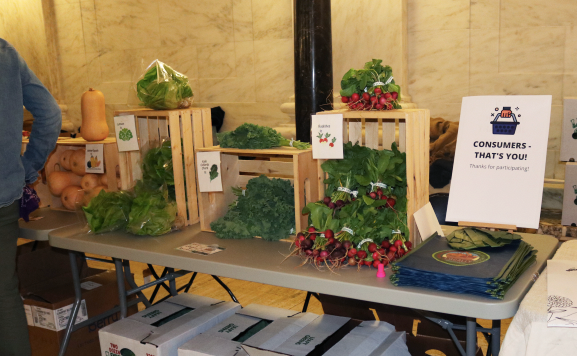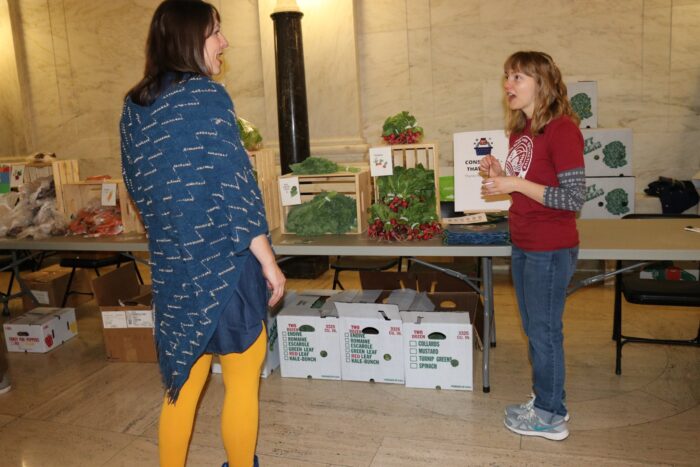
West Virginia Food and Farm Coalition (WVFFC) provides statewide leadership in local food so farmers and agriculture businesses can thrive, ultimately nourishing and strengthening their communities. Farmers markets are a key connection point between producers and their customers – especially during COVID-19, when outdoor markets were one of the few places communities could gather. WVFCC’s programming, such as foodshed development and Supplemental Nutrition Assistance Program (SNAP) Stretch, played a role in equipping markets with the tools to thrive in tough times.
Connecting Farmers & Communities to Opportunity
One component of local markets is foodshed coordinators, which help connect new vendors at farmers markets and help the market become more financially sustainable. Using an ARC POWER grant, WVFFC facilitated community discussions to identify agribusiness opportunities, forge partnerships, and create opportunities for local value-added production. Ultimately, these discussions helped strengthen local food supply chains and increase market opportunities for growers in five West Virginia foodsheds, across 17 coal-impacted counties.
WVFFC also used the funding to provide technical assistance and training to farmers, while helping food businesses and community members determine and execute agribusiness priorities, resulting in increased food production and access to previously unreachable markets. Funding was also used to help nascent farmers markets and grocery stories access the supplies, equipment, and technical assistance needed to succeed.

Maximizing Support for Markets
In addition to helping markets and other outlets improve operations, WVFCC enabled their participation in SNAP Stretch, ultimately helping community members maximize their support for producers. Through the program, SNAP recipients were able to double and triple benefits while shopping at participating markets. In 2020, this SNAP Stretch captured $250,000 in grant dollars and $250,000 in federal food assistance dollars in the local food system. When compounded with an economic multiplier, it put $825000 into the local economy. At a time with both food and economic insecurity peaking, WVFFC’s programs helped quell both in West Virginia communities.
When crisis hits, local food is often one of the first essential sectors to step up and serve. However, it takes committed groups, like WVFCC, to ensure those food systems are already strong enough to remain a source of strength for their communities. ARC is proud to support their efforts to grow opportunities and local resilience through food and agriculture.

